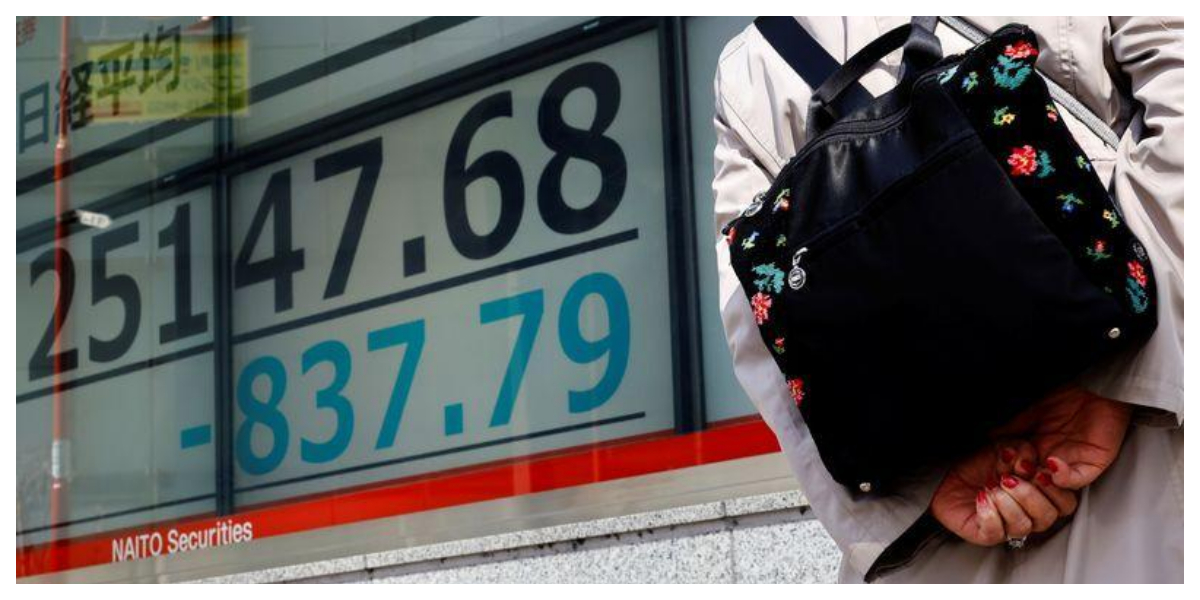Stocks rebound, oil extends losses

Stocks rebound, oil extends losses
The US and European stock markets rebounded Tuesday after days of losses due to concerns about rising US interest rates, rising inflation, and the impact of China’s prolonged Covid lockdowns.
World stock markets have been volatile this year, but have suffered sharp losses after the US Federal Reserve raised interest rates by half a percentage point last week to combat rising inflation.
Between rising prices eating into the disposable income of consumers and higher borrowing costs, investors have been increasingly concerned about the possibility of a recession.
After several days of sharp losses, both European and US stock markets turned positive on Tuesday, with the Dow gaining 1.5 percent at the start of trading.
“The thrust of this morning’s upward movement is rooted in the thrashing that has been seen since last Wednesday’s highs,” said market analyst Patrick O’Hare at Briefing.com.
“Specifically, the Nasdaq Composite has dropped 10.5 percent from its high following the Potemkin-like rally in the wake of the” Fed’s announcement of the rate hike.
Many tech stocks are listed on the Nasdaq Composite and these companies are sensitive to interest rates and often viewed as riskier investments.
“We’re seeing a small recovery in stock markets on Tuesday, as investors dust themselves off following the rout at the start of the week,” said Craig Erlam, senior market analyst at online trading platform OANDA.
“There’s clearly a huge amount of worry about a recession in the markets at the minute as central banks continue to aggressively tighten against the backdrop of a slowing economy and a cost-of-living crisis,” he added.
Asian equities mostly sank following sharp losses on Wall Street on Monday.
Bitcoin on Tuesday slumped briefly under $30,000, reaching a 10-month low.
The volatile cryptocurrency has lost more than half its value since a November surge saw it reach a record-high of nearly $69,000.
While crypto enthusiasts view bitcoin as a hedge against inflation, an influx of more traditional investors tend to view it as a riskier asset.
They have been offloading bitcoin and other digital tokens along with other volatile assets like tech stocks as the US Federal Reserve moves to hike interest rates to tackle decades-high inflation.
Data on Tuesday showed inflation in Greece jumping by 10.2 percent in April, its highest level since 1995, while it reached its highest rate since 1984 in Denmark at 6.7 percent.
Inflation began to rise after countries emerged from Covid pandemic restrictions last year, but it worsened following Russia’s invasion of Ukraine, which pushed energy and food prices even higher.
The Ukrainian economy is set to contract by almost one-third this year in the wake of Russia’s invasion, the European development bank said.
Ukraine’s output is expected to fall by 30%, compared to an EBRD forecast of -20% in March, shortly after Moscow launched its military offensive.
Elsewhere Tuesday’s drop in oil prices was less severe than the more than 6% drop on Monday due to concerns about weaker demand.
Read More News On
Catch all the Business News, Breaking News Event and Latest News Updates on The BOL News
Download The BOL News App to get the Daily News Update & Live News.